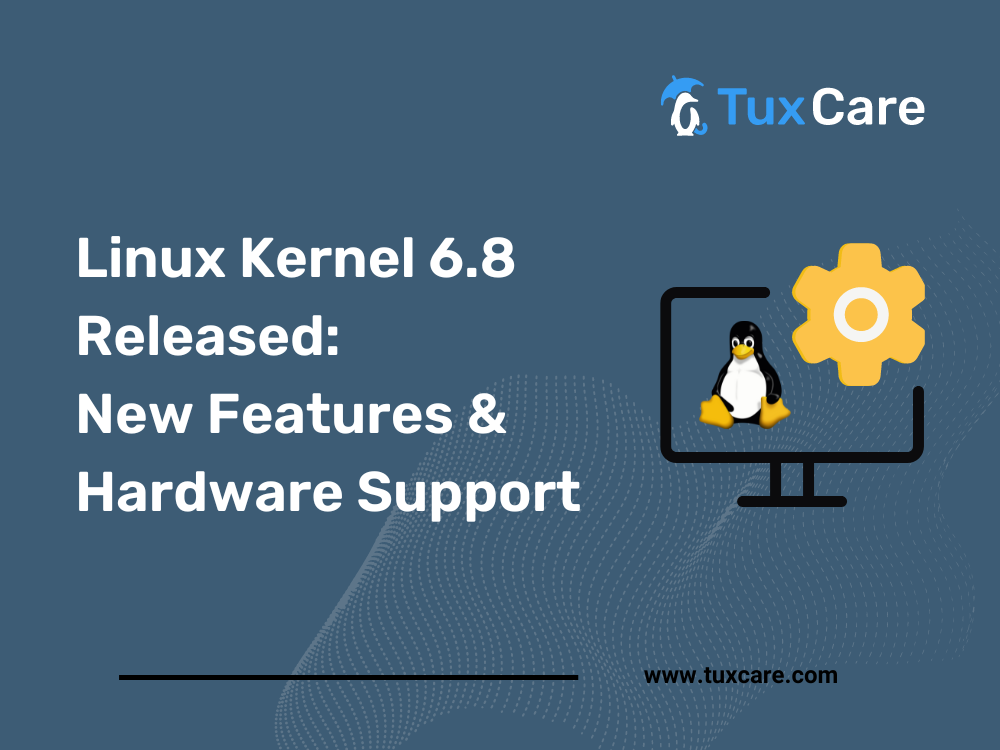Linux Kernel 6.8 Released: New Features and Hardware Support
Linus Torvalds recently announced the release of Linux kernel 6.8, the latest stable version of the Linux kernel. This update brings a plethora of new features and improvements, making it a significant upgrade for many users.
Key Highlights of Linux Kernel 6.8
Virtualization Enhancements: Kernel 6.8 introduces LAM (Linear Address Masking) virtualization on Intel processors for KVM guests and guest-first memory support for KVM, improving virtualization performance and flexibility.
Filesystem Support: The update expands filesystem support with a basic online check and repair mechanism for Bcachefs. It also enables online fsck checks without unmounting for XFS, faster reads for small blocks for Ext4, new mount flag to disable the free block cache and use of page folios for Btrfs, subpage compression and low-memory performance improvements for EROFS, and SMB file system gains block and symbolic device files creation for SMB.
Hardware Compatibility: This kernel boasts improved hardware compatibility with support for the Broadcom BCM2712 processor in Raspberry Pi 5, AMD’s WBRF Wi-Fi feature, and Intel’s Xe graphics with a new DRM driver.
Memory Management: Kernel 6.8 optimizes memory management with zswap writeback disabling and a multi-size THP (Transparent Huge Pages) interface. It also introduces initial Rust support for the LoongArch architecture.
Networking Optimizations: The update includes various networking optimizations for better cache efficiency and support for the SMB file system to create special files. Additionally, there’s initial Rust support for creating network PHY drivers.
Power Management: Kernel 6.8 refines power management with support for SBI-based suspend to RAM and enabling the V extension for RISC-V architecture.
AppArmor Enhancements: Linux kernel 6.8 upgrades AppArmor’s security by switching from the insecure SHA1 hashing algorithm to the stronger SHA256. This improves reliability but may slightly slow down policy loading on low-end systems.
Securing Linux Kernel with KernelCare Live Patching
Kernel is the core component of Linux operating systems, controlling access to hardware and managing all other programs. Therefore, maintaining the kernel security is paramount. TuxCare’s KernelCare Enterprise offers live patching for Linux kernels on all popular distributions, including Ubuntu, Debian, CentOS, AlmaLinux, Rocky Linux, RHEL, Oracle Linux, CloudLinux, and more. It automatically applies security patches to the running kernel without having to reboot the system or schedule maintenance windows.
Ask a question to our Linux security experts and get guidance on modernizing your Linux patching approach.
Conclusion
It’s important to note that Linux kernel 6.8 will have a short support window of just a few months. Its successor, Linux kernel 6.9, is already in development with its merge window opened. It is expected to be released in mid-May 2024. If you’re eager to try the new features and improvements in Linux kernel 6.8, you can download it now from Linus Torvalds’ git tree or the kernel.org website. Remember to check your distribution’s documentation for specific installation instructions.
The sources for this article include a story from Phoronix.



 Documentation
Documentation Login
Login




